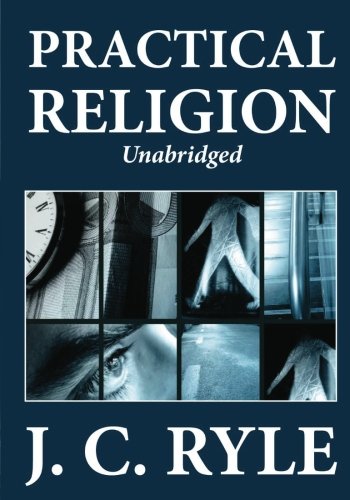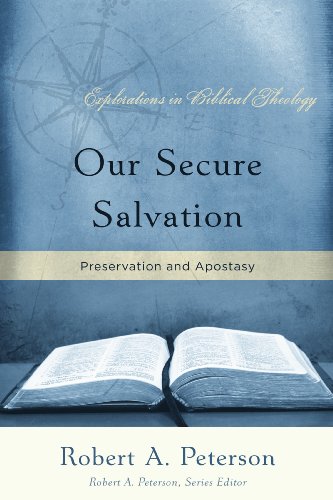Quotes about Carnality
It is a most lamentable thing to see how most people spend their time and their energy for trifles, while God is cast aside. He who is all seems to them as nothing, and that which is nothing seems to them as good as all. It is lamentable indeed, knowing that God has set mankind in such a race where heaven or hell is their certain end, that they should sit down and loiter, or run after the childish toys of the world, forgetting the prize they should run for. Were it but possible for one of us to see this business as the all-seeing God does, and see what most men and women in the world are interested in and what they are doing every day, it would be the saddest sight imaginable. Oh, how we should marvel at their madness and lament their self-delusion! If God had never told them what they were sent into the world to do, or what was before them in another world, then there would have been some excuse. But it is His sealed word, and they profess to believe it.
Disturb us, Lord, when we are too well pleased with ourselves, when our dreams have come true because we have dreamed too little, when we arrive safely because we have sailed too close to the shore.
Disturb us, Lord, when with the abundance of things we possess, we have lost our thirst for the waters of life; having fallen in love with life, we have ceased to dream of eternity; and in our efforts to build a new earth, we have allowed our vision of the new Heaven to dim.
Disturb us, Lord, to dare more boldly, to venture on wider seas where storms will show your mastery; where losing sight of land, we shall find the stars. We ask you to push back the horizons of our hopes; and to push into the future in strength, courage, hope, and love.
The cause of Christ has been hurt more by Sunday-morning benchwarmers who pretend to love Christ, who call Him Lord but do not His commands, than by all the publicans and sinners. They say they are evangelical but not evangelistic. They glory in being… disciples of the Lowest Common Denominator. They traffic in unfelt truth and refuse to get excited over religion. Their ideal service is “a mild-mannered man standing before a group of mild-mannered people, exhorting everybody to be more mild-mannered”… How many nice, comfortable, lovely people rest smilingly in church pews, their conscience drugged, their wills paralyzed, in self-satisfied stupor, utterly unconscious of their danger while the Lord of the Lampstands warns them, “I am about to spit you out of My mouth.
When the reality of sin and its radical effects on the whole man are bypassed the idea takes over that it simply takes a decision for Christ to bring about the new birth. A decision for Christ is all that is needed. This is “easy-believism,” in which repentance from sin is sidelined. Those who make a decision receive a pronouncement that they are saved. This proves premature. False converts are the outcome. The theory of the carnal Christian has been invented in order to accommodate those who have made a decision but who bear no marks of the new birth.
In our generation we have increasingly suffered from spiritual lethargy and powerlessness. There is a high percentage of weak and lukewarm Christians in western churches who evidence little interest in growing in grace and knowledge. The church may be bustling with activity and at the same time be infiltrated and permeated with the world’s thinking and doing. It is sometimes the case that our bright forms of worship camouflage a dead spiritual condition.
Within evangelicalism is a distressing drift toward accepting a Christianity that does not demand a life-changing walk with God. Many evangelicals (today) do not realize that the church has always been an island of righteousness in a sea of paganism, but as a result they turned the world upside-down.
Contemporary theologians have fabricated an entire category for this type of person – the “carnal Christian.” Who knows how many unregenerate persons have been lulled into a false sense of spiritual security by the suggestion that they are merely carnal? Christians can and do behave in carnal ways, but nothing in Scripture suggests that a real Christian might pursue a life-style of unbroken indifference or antagonism toward the things of God. Christians do not masquerade as children of the devil. The very reverse is true; Satan pretends to be an angel of light, and his servants imitate the children of righteousness (2 Corinthians 11:14-15).
A fleshly/carnal life will corrupt morals, weaken personal relationships, produce doubt about God and His Word, destroy prayer life and provide fertile ground for heresy.
Perhaps you don’t drift the way that I do, but I constantly forget the deep hole of depravity from which the Lord’s mighty love rescued me. Drifting does not take any effort at all; just stop cultivating the knowledge of Christ, and the evil current of secularism does the rest. All passion for the lost seems increasingly a fading memory. Jesus weeping over Jerusalem, Paul willing to be cursed for the sake of his countrymen, those things become very remote to the point of being unreal.
There is only one way to live: all-out, go-for-broke, risk-taking enthusiasm for Christ. Halfway Christianity is the most miserable existence of all. Halfhearted Christians know enough about their sin to feel guilty about themselves, but they haven’t given themselves enough to the Savior to become happy in Him.
Blog Post: The Most Important Thing My Dad Taught Me, October 31, 2011, Used by Permission.
I would like to buy three dollars worth of God, please. Not enough to explode my soul or disturb my sleep, but just enough of Him to equal a cup of warm milk or a snooze in the sunshine. I don’t want enough of Him to make me love a black man or pick beets with a migrant. I want ecstasy, not transformation. I want the warmth of the womb, not a new birth. I want a pound of the Eternal in a paper sack, please. I would like to buy three dollars worth of God, please (Wilbur Reese).
The nature of Christ’s salvation is woefully misrepresented by the present-day evangelist. He announces a Savior from hell rather than a Savior from sin. And that is why so many are fatally deceived, for there are multitudes who wish to escape the Lake of Fire who have no desire to be delivered from their carnality and worldliness.
Nine serious errors of teaching affirming a “carnal Christian”:
1. The “carnal Christian” doctrine depends upon a wrong interpretation and application of 1 Corinthians 3:1-4.
2. The “carnal Christian” teaching divides the two basic blessings of the new covenant [forgiveness of sins and a new heart] because it denies that one of them is experienced by all true Christians.
3. This teaching does not distinguish between true, saving faith and the spurious belief mentioned in John 2:23-24; 12:42-43; Luke 8:13 and Acts 8:12-23.
4. The “carnal Christian” teaching lies in its virtual exclusion of repentance from the conversion experience. This is implied by the suggestion that the “carnal Christian” has not changed in practice but lives and acts just like the natural man.
5. The three-class theory is prone to give assurance to those who were never really converted.
6. The fruits of this teaching are not new to Christianity even though the teaching appears on the present scene under a new mask (see Romans 6:1-2).
7. “Carnal Christian” teaching is the mother of many second work-of-grace errors in that it depreciates the biblical conversion experience by implying that the change in the converted sinner may amount to little or nothing.
8. The “carnal Christian” teaching is also the mother of one of the most soul-destroying teaching of our day. It suggests that you can take Jesus as your Savior and yet treat obedience to His lordship as optional.
9. This teaching breeds Pharisaism in the so-called “spiritual Christians” who have measured up to some man-made standard of spirituality. There ought to be no professed “spiritual Christians,” much less “super-spiritual” ones!
What Should We Think of the Carnal Christian? 1978, p. 10-21. By permission Banner of Truth, Carlisle, PA.
The “carnal Christian” teaching appeals to those who are supposed to be justified, as though a new heart and life are optional. Sanctification is spoken of as though it can be subsequent to the forgiveness of sins and so people are led to believe that they are justified even though they are not being sanctified! The truth is that we have no reason to believe that Christ’s blood covers our sins in the record of heaven if the Spirit has not changed our hearts on earth. These two great blessings are joined together in the one covenant. The working of the Spirit and the cleansing of Christ’s blood are inseparably joined in the application of God’s salvation.
What Should We Think of the Carnal Christian? 1978, p. 14. By permission Banner of Truth, Carlisle, PA.
Every Christian is carnal in some area of his life at many times in his life… All the marks of Christianity are not equally apparent in all Christians. Nor are any of these marks manifest to the same degree in every period of any Christian’s life. Love, faith, obedience, and devotion will vary in the same Christian in different periods of his Christian experience; in other words, there are many degrees of sanctification. The Christian’s progress in growth is not constant and undisturbed. There are many hills and valleys in the process of sanctification; and there are many stumblings, falls and crooked steps in the process of growth in grace…[Yet] the Bible [does not] divide men into three categories.
What Should We Think of the Carnal Christian? 1978, p. 8-9. By permission Banner of Truth, Carlisle, PA.
In Romans 8:1-9 there is a division stated, but it is not between carnal and spiritual Christians. It is a division between those who walk after the flesh (the unregenerate) and those who walk after the Spirit (they that are Christ’s). There is no third category. Again, in Galatians 5:17-24 we have only two classes or categories – those that do the works of the flesh and those that are led by the Spirit. There is no third or fourth class or group.
What Should We Think of the Carnal Christian? 1978, p. 4. By permission Banner of Truth, Carlisle, PA.
There is a common, worldly kind of Christianity in this day, which many have, and think they have enough – a cheap Christianity which offends nobody, and requires no sacrifice – which costs nothing, and is worth nothing.
We as Bible-believing evangelical Christians are locked in a battle. This is not a friendly gentleman’s discussion. It is a life and death conflict between the spiritual hosts of wickedness and those who claim the name of Christ… But do we really believe that we are in a life and death battle? Do we really believe that the part we play in the battle has consequences for whether or not men and women will spend eternity in hell? Or whether or not those who do live will live in a climate of moral perversion and degradation? Sadly, we must say that very few in the evangelical world have acted as if these things are true… Where is the clear voice speaking to the crucial issues of the day with distinctively biblical, Christian answers? With tears we must say it is not there and that a large segment of the evangelical world has become seduced by the world spirit of this present age. And more than this, we can expect the future to be a further disaster if the evangelical world does not take a stand for biblical truth and morality in the full spectrum of life.
The carnal mind seeks to create its own god which loves everyone, puts up with all matter of evil and foolishness, and gives in to the will of evil men who cry “Inequality!”
I daresay the devil finds himself at home in Hades. But if he could be converted into a seraph, he would not stop in hell for an hour. He would never want to go there again for pleasure. Of that I am certain. And when a man who professes to be converted says that he goes into the world and into sin for pleasure, it is as if an angel went into hell for enjoyment.
I caution against referring to “carnal” and “spiritual” as rigid categories or classes of Christians. The idea of a distinctive class or category implies a strict line of demarcation between one group of believers and another. It suggests there are readily identifiable stages in the Christian life into which one may enter if certain things are done or out of which one may fall if other things are done. Sanctification, however, is far too fluid for such strict categorization. In other words, sanctification is a process which, because of its constantly dynamic and progressive nature, defies rigid classifications.
The Carnal Christian – Study of 1 Corinthians 3:1-3, November 6, 2006, www.enjoyinggodministries.com. Used by Permission.
There are two senses in which a Christian can be spoken of as “carnal”.
1. As new converts, all Christians are to varying degrees carnal.
2. Among long-time Christians, some may be.
The former is expected. The latter is not.
The Carnal Christian – Study of 1 Corinthians 3:1-3, November 6, 2006, www.enjoyinggodministries.com. Used by Permission.
Carnality and spirituality, rather than being categories or classes into which one enters in the Christian life, are characteristics or moral tendencies which one manifests in varying degree throughout the course of the Christian life. The ideal as set forth in Scripture is, of course, a progression that is always upward – away from manifestations of carnality and toward manifestations of maturity.
The Carnal Christian – Study of 1 Corinthians 3:1-3, November 6, 2006, www.enjoyinggodministries.com. Used by Permission.
Carnality in the Christian, whenever and in whatever way it manifests itself, is a temporary condition. There is no basis in Scripture for the teaching that genuinely born again and justified Christians can persist, without great discomfort, in their sin (a discomfort, I might add, due to the promptings of the Holy Spirit or the chastisement of the Father, such as lead to repentance).
The Carnal Christian – Study of 1 Corinthians 3:1-3, November 6, 2006, www.enjoyinggodministries.com. Used by Permission.
If I see aright, the cross of popular evangelicalism is not the cross of the New Testament. It is, rather, a new bright ornament upon the bosom of a self-assured and carnal Christianity. The old cross slew men, the new cross entertains them. The old cross condemned; the new cross amuses. The old cross destroyed confidence in the flesh; the new cross encourages it.
Many who say “Our Father” on Sunday spend the rest of the week acting like orphans.
Isn’t it strange how a $100 “looks” so big when you take it to church, but so small when you take it to the mall. Isn’t it strange how long it takes to serve God for an hour, but how quickly a team plays 60 minutes of basketball. Isn’t it strange how long a couple of hours spent at church are, but how short they are when watching a movie. Isn’t it strange how we can’t think of anything to say when we pray, but don’t have difficulty thinking of things to talk about to a friend. Isn’t it strange how we get thrilled when a baseball game goes into extra innings, but we complain when a sermon is longer than the regular time. Isn’t it strange how hard it is to read a chapter in the Bible, but how easy it is to read 100 pages of a bestselling novel. Isn’t it strange how people want to get a front seat at any game or concert, but scramble to get a back seat at church services. Isn’t it strange how we need 2 or 3 weeks advance notice to fit a church event into our schedule, but can adjust our schedule for other events at the last moment. Isn’t it strange how hard it is for people to learn a simple gospel well enough to tell others, but how simple it is for the same people to understand and repeat gossip. Isn’t it strange how everyone wants to go to heaven provided they do not have to believe, or to think, or to say, or do anything. Isn’t it strange how you can send a thousand ‘jokes’ through e-mail and they spread like wildfire, but when you start sending messages regarding the Lord, people think twice about sharing. Isn’t it strange how we set our clocks to arise at 4:00am or 5:00am to be at the job by 7:30, yet when Sunday comes we can’t get to church for 11:00am to praise the one who gave us the jobs! Isn’t it strange how we call God our Father and Jesus our brother, but find it hard to introduce them to our family. Isn’t it strange how small our sins seem, but how big “their” sins are. Isn’t it strange how we demand justice for others, but expect mercy from God. Isn’t it strange how we are so quick to take directions from a total stranger when we are lost, but are hesitant to take God’s direction for our lives. Isn’t it strange how so many churchgoers sing “Standing on the Promises” but all they do is sit on the premises. Isn’t it strange how people want God to answer their prayers, but refuse to listen to His counsel. Isn’t it strange how we sing about heaven, but live only for today. Isn’t it strange how people think they are going to Heaven, but don’t think there is a Hell. Isn’t it strange how it is okay to blame God for evil and suffering in the world, but it is not necessary to thank Him for what is good and pleasant. Isn’t it strange how when something goes wrong, we cry, “Lord, why me?” but when something goes right, we think, “Hey, it must be me!”
The modern church is deteriorating in its need for pastors and is in dire need of evangelists.
The fundamental problem in the evangelical world today is not inadequate technique, insufficient organization, or antiquated music and those who want to squander the church’s resources bandaging these scratches will do nothing to staunch the flow of blood that is spilling from its wounds. The fundamental problem in the evangelical world today is that God rests too inconsequentially upon the church. His truth is too distant, His grace too ordinary, His judgment too benign, His gospel too easy, and His Christ is too common.
God in the Wasteland, Eerdmans, www.eerdmans.com, 1994, p. 30. Get this book!
What, then, is a “carnal’ Christian”? Is it biblical to divide believers into “spiritual men” and “carnal men”? There is, I think, a better way. It would be better to say that each believer is both spiritual and carnal. Even that, however, is not quite what the New Testament teaches. It is best to emphasize what the Bible emphasizes: Christians are habitually, or characteristically, spiritual men and women. If a man is not characteristically spiritual he is not a Christian at all. No amount of profession will make up for his ungodliness. But it is true of genuine believers, in a sense, that we are carnal. It is true, I mean, that we still sometimes sin. We are in constant need of God’s mercy. We are always candidates for God’s grace.
The Bible plainly teaches that God works in His people to keep them from habitually walking apart from Him. In a believer, a carnal or fleshly walk can only be temporary and partial. There is no such thing as a characteristically carnal Christian. That would be a contradiction in terms.
Is it not strange that we can for one moment lose sight of heaven, and the increasing glory; and grovel in the dust to gather pebbles, for the pleasure of throwing them afterwards away?






















